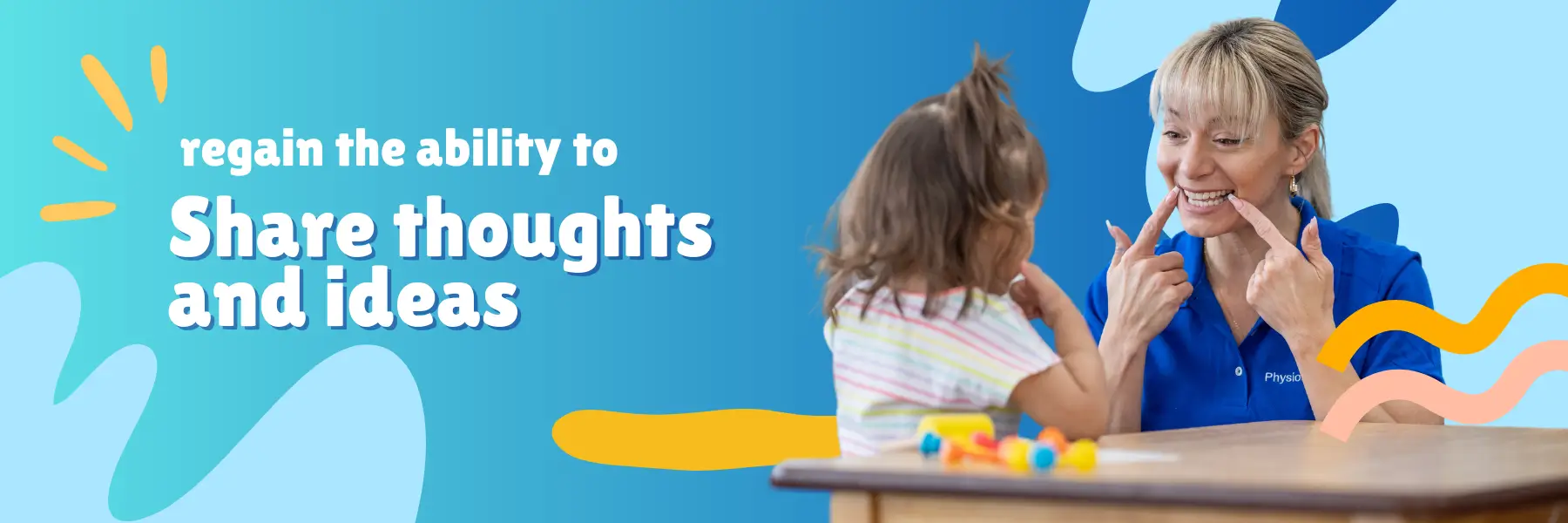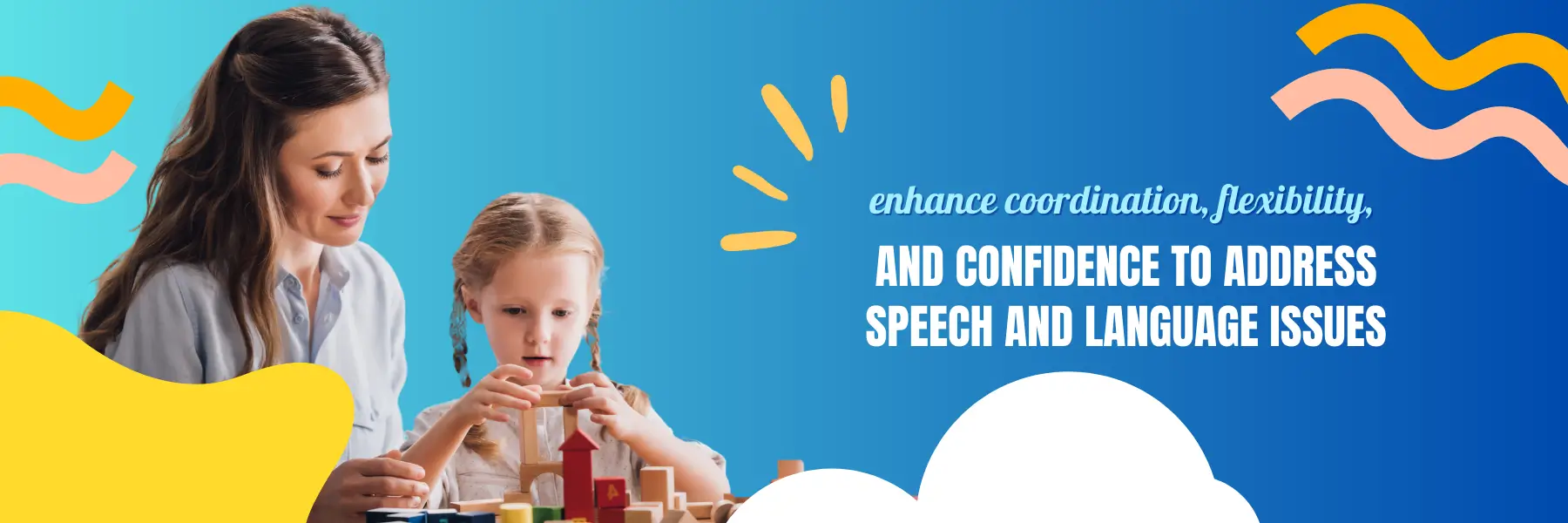 Speech and language impairments affect a significant number of school-aged children in Australia, with a study by McLeod & McKinnon (2007) in NSW revealing that 13% of students have communication disorders. But there’s hope.
Speech and language impairments affect a significant number of school-aged children in Australia, with a study by McLeod & McKinnon (2007) in NSW revealing that 13% of students have communication disorders. But there’s hope.
Speech therapy services in Sydney provide tailored interventions to support children and adults, helping them overcome challenges and enhance their learning, social interactions, and overall confidence.
Through this blog, you will learn how effective speech therapy services help you break communication barriers and thrive in every aspect of life.
What is Speech Therapy?
Speech therapy is a specialised healthcare for individuals facing difficulty in communicating due to developmental delays, strokes, brain injuries, intellectual disabilities, dementia, or other problems which affect proper speech and language skills.
The therapy is provided by licensed therapists, often known as speech-language pathologists (SLPs).
They evaluate, diagnose, and treat various communication disorders, including speech, language, voice, fluency, and swallowing abnormalities.
Speech therapy at the early development stage effectively improves speaking, writing, social skills, and language understanding.
 What Disorders Do Speech Therapists Treat?
What Disorders Do Speech Therapists Treat?
Speech therapists treat children and adults by identifying, assessing, diagnosing, and addressing speech, language, verbal communication, and expression difficulties. Here are some of the issues treated by speech therapists in Sydney.
Speech Delays and Disorders: Children who show slow progress start talking or developing their speech. They might have difficulties in making specific sounds or producing speech properly.
Articulation Disorders: It involves issues pronouncing words correctly, making the communication unclear and ambiguous.
Language Disorders: There can be signs of difficulty in understanding others’ language or expressing ideas, thoughts, and feelings.
Fluency Disorders: It includes problems such as stammering, fumbling, or difficulty maintaining a smooth, fluent flow of speech.
Voice Disorders: Abnormalities are found in voice quality and pitch, leading to embarrassment and frustration, especially for persons in professions that rely on voice quality.
Swallowing Disorders (Dysphagia): This problem arises from difficulty eating and swallowing, typically following a stroke, injury, illness, or surgery.
How Does Speech Therapy Work?
The speech therapy plan is highly individualised, considering the patient’s needs, challenges, and goals. The process of speech therapy typically involves the following steps:
Initial Assessment
The speech therapists thoroughly assess the nature of the problem through a series of evaluations. This might involve standardised tests, observations, and interactions with family members to collect more information to understand the issue comprehensively.
Goal Setting
Once the assessment is complete, the therapist plans the treatment process by setting realistic, achievable goals. For example, if a child has trouble pronouncing certain sounds, the goal might be to improve articulation in everyday conversation. If an adult is recovering from a stroke, the focus might be on rebuilding speech and language skills.
Therapeutic Intervention
The intervention stage involves therapy sessions that use a wide range of techniques. From exercises and coordination for speech production to behavioural strategies for overcoming anxiety around speaking, therapists engage clients in learning new skills,
Regular Review and Adjustments
As the treatment progresses, therapists continually evaluate the results and modify the therapy plan accordingly to adapt to the changing needs of the individuals. This flexible approach makes the process more effective and delivers the best possible outcomes.
How Do You Know That Your Child Needs Speech Therapy?
Everyone has a different pace of developing skills throughout childhood and adulthood. Still, monitoring the signs or issues as children progress toward a healthy life is essential. The following signs in children may indicate the need for speech therapy.
- At 4-7 months, the child will likely experiment with sounds. An unusual quietness may be the first sign of a speech disorder.
- Pointing, waving, and other gestures are common in kids between 7-12 months. If you notice a lack of gestures in children, they may need some help.
- Children between 12 and 24 months generally start to comprehend simple spoken words. If your child has difficulty understanding simple instructions, you might require a speech therapist to intervene.
- Between 1.5 and 2 years, children typically start forming sentences. You may need to consult a speech therapist if you observe any delay or distortion.
Techniques used in Speech Therapy
The tools and techniques used by speech-language pathologists focus on meeting individual needs and challenges and employ the following methods:
- Targeted exercises for strengthening and improving coordination of speech muscles and breathing techniques to improve fluency
- Augmentative and Alternative Communication (AAC) tools, such as visual and auditory aids, can enhance non-verbal communication.
- Technology-assisted and Play-based therapies to motivate and encourage children to build communication skills.
Benefits of Speech Therapy Services in Sydney
Improving communication and skills for people living with speech disabilities is the primary goal of NDIS speech therapy programs. In a dynamic city like Sydney, speech therapy services are becoming increasingly popular because they support individuals across all age groups. Let’s look at the benefits you achieve from specialised speech therapies.
Improved Communication
The primary benefit of speech therapy is improving communication skills. This can help children express their needs and feelings more clearly. At the same time, it helps adults regain the ability to share thoughts and ideas and engage in effective social or professional conversations.
Enhanced Academic Performance
For younger groups, speech therapy can directly impact academic success. Improving language and speech with clarity and fluency helps children communicate easily, follow instructions, participate in academics and co-curricular activities, and engage with peers.
Increased Confidence
Struggling with speech or language disorders can make you feel demotivated and emotionally distressed, developing a sense of isolation. However, with speech therapy, you can experience a boost in confidence to engage in social interactions and enjoy more fulfilling personal and professional relationships.
Better Quality of Life
If you are facing swallowing disorders, language difficulties, or voice problems, speech therapy can make a significant positive impact on your life. You will be able to eat, speak, and communicate comfortably, allowing you to participate in your daily activities with greater independence and confidence.
Final Thoughts
Speech therapy services in Sydney effectively serve the diverse and dynamic population to meet the growing demand for communication support.
Whether you are a parent concerned about your child’s speech development or an adult with a communication disorder, NDIS speech therapists in Sydney offer a broad spectrum of specialised support and expertise necessary for lasting improvement.
At Ability Allied Health, we design tailored strategies to enhance coordination, flexibility, and confidence to address speech and language issues. Our expert and efficient speech therapists are committed to serving you with compassionate and dedicated support that can positively impact your life.
Book an appointment with Ability Allied Health today and take the first step toward better communication.